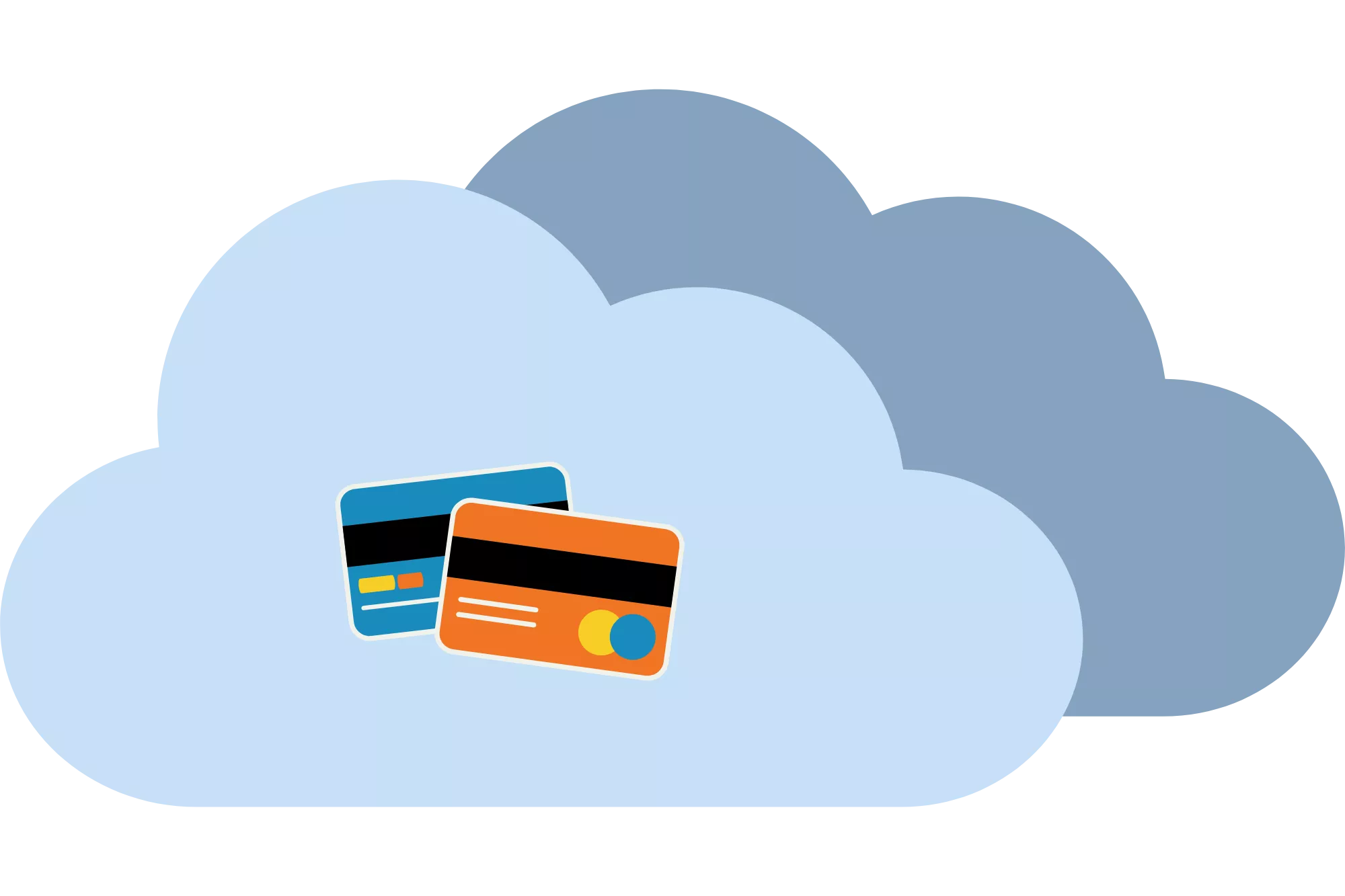TABLE OF CONTENTS

There are four main types of payment gateways, all of which function differently to secure and transmit sensitive transaction data between cardholders, merchants, and payment processors. When a cardholder enters their credit card details into a payment gateway, the gateway encrypts the data, authenticates the credit card, and communicates the details to the acquiring bank to facilitate the transaction.
With the world’s top card networks expecting an estimated growth of the market to around 198 billion by 2032, it’s safe to say payment gateways are a must-have for businesses.[1]Globenewswire. “Payment Gateway Market Size to Surpass USD 161 Billion by 2032 at Sustained CAGR of 20.5% – Market.us Study”. Accessed July 7, 2023. But before committing to a payment gateway, you should understand the differences between each type to ensure you choose the one more suitable for your business needs. Fortunately, this very guide explores the four different types of payment gateways!
What Are the 4 Main Payment Gateway Types?
All four payment gateway types offer the same core service: the secure facilitation of transactions for merchants. Their differences reside in hosting, data security features, upkeep requirements, costs, and other unique factors. Let’s explore each payment gateway type in more detail.
1. Hosted
Hosted payment gateways require the least amount of effort from merchants, as they are “hosted” by a third-party provider. Customers who “check out” on a merchant’s website are immediately transported to a third-party website or portal to complete their payment.
Some of the largest payment service providers (PSPs) in the industry utilize hosted payment gateways to help merchants process payments. This offloads much of the data protection and transaction responsibilities onto the PSP.
Some consumers prefer this type of payment gateway, as PayPal and other PSPs allow consumers to save payment details for future use. However, the per-transaction costs can be higher than the industry’s average payment gateway fees. These exorbitant costs are incurred because businesses pay for the convenience offered by a hosted payment gateway. Additionally, merchants using hosted payment gateways don’t have complete control over the checkout experience for customers, making it hard to fine-tune a website for increased conversions.
Pros
- Secure: Hosted payment gateways benefit from strong security protocols, protecting your customer’s sensitive data and reducing the likelihood of chargebacks. And with more than 65% of merchants reporting increases in eCommerce fraud, strong security is a top priority for businesses accepting card payments.[2]Business Wire. “Merchants Report Increase in Chargebacks but Little Success in Combatting Them, According to the 2022 Chargebacks911 Field Report“. Accessed April 25, 2023.
- PCI Compliant: A hosted payment gateway will ensure your business’s payments are PCI compliant.
- Easy Setup: Hosted gateway solutions are built for a streamlined setup process, making secured digital payment infrastructures accessible for businesses of any size.
Cons
- Third-Party Branding: Because a hosted payment gateway usually uses its own branding, you won’t benefit from a fully integrated checkout process with your business’s logo and color scheme.
- Less Control: As customers are transported to a third-party site for processing, merchants don’t have complete control over the checkout experience or data metrics.
2. Self-Hosted
Self-hosted payment gateways collect payment information directly on the merchant’s website. Once a customer inputs their payment details, the collected data is encrypted, the credit card is authenticated, and the transaction information is transmitted to the payment processor.
One of the primary benefits of a self-hosted payment gateway is user experience. Customers are not rerouted to a third-party payment processor, so the checkout process is all in one place. Similarly, businesses can keep tabs on checkout metrics like abandoned shopping cart rates, checkout timeframes, and more.
However, with a self-hosted payment gateway, the success of your payment platform falls primarily on you. You won’t have the same access to dedicated support that you’ll find with the other payment gateway solutions.
Pros
- Seamless Checkout Process: The payment process occurs on-site, eliminating the step of redirecting cardholders to a third-party payment portal.
- Control Over Customer Metrics: Businesses have control over their own checkout experience and metrics, allowing merchants to improve their eCommerce processes.
Cons
- Less Dedicated Support: Merchants with self-hosted payment gateways don’t benefit from dedicated support, making it challenging to solve technical problems. This can lead to a poor business reputation down the line.
3. API-Hosted
An application programming interface (API) allows your business to develop a custom payment gateway that is fully integrated into your website. All front-end payment elements are conducted on your site within an interface that is customizable to your desired branding and checkout experience.
While there’s no doubt that the API integration route offers functionality and customizability, it also rests all the security responsibilities on your shoulders.
Pros
- Fully Customizable: API-hosted payment gateways offer complete flexibility in terms of branding and checkout experience, making it a top option for businesses seeking total control over their payment processing.
- Versatile Compatibility: API-hosted gateways are suitable for all types of devices. Many businesses with a focus on mobile shopping rely on API-hosted payment gateways.
Cons
- Security & Compliance Responsibility: With an API-hosted gateway, the merchant is responsible for securing customer data and remaining PCI compliant with SSL certificates.
4. Local Bank Integration
Local bank integration is a little bit different than the aforementioned gateways. Customers are automatically transferred to a local bank’s website to submit their payment; and once complete, the gateway redirects the customer back to the merchant’s website. This is a rudimentary payment gateway option as it offloads the payment infrastructure and security onto a local banking partner. These gateways often seem inefficient to modern consumers because they don’t offer a sleek, effortless checkout process now available through technological advances.
Pros
- Quick and Simple Setup: Local bank integration gateways offer quick and affordable access to credit card payments.
Cons
- Not Seamless: As customers are redirected to a local banking site to process payments, the checkout experience is commonly referred to as subpar.
- Not Scalable: If you plan to grow your business, this solution isn’t scalable enough to handle the demand of a larger enterprise.
- Not Customizable: Merchants can’t customize the payment interface or control the checkout process with local bank gateways.
Which Type of Payment Gateway Is Best for Your Business?
There’s no secret that payment gateways can significantly increase revenue for your online business—so which type is the best payment gateway for you? The answer depends on a variety of factors including technical capabilities, payment preferences, and business size. Let’s do a cursory review:

- Local bank integration gateways are the least common type, as they don’t have the scalability needed for more ambitious enterprises.
- Hosted payment gateways are excellent for businesses wanting to outsource compliance and processing. However, they are expensive and don’t offer customization.
- API-hosted gateways and self-hosted gateways offer the most control over payment operations. Both are excellent choices for businesses wanting full power over their customer’s checkout experience and access to in-depth, real-time metrics. Additionally, API-hosted gateways offer the most customer support overall.
In any case, if you want to utilize a payment gateway within your business operations, you’ll need to integrate it with a merchant account before you can begin accepting payments. A merchant account connects businesses with affordable payment processing options and strong chargeback protection tools. They also offer numerous short- and long-term advantages over payment service providers. These perks include lower processing fees, quicker funding timeframes, and increased control over payments. When you partner with an experienced eCommerce merchant account provider, you’ll be matched with the best payment gateway type and merchant account for your business’s individual needs!







